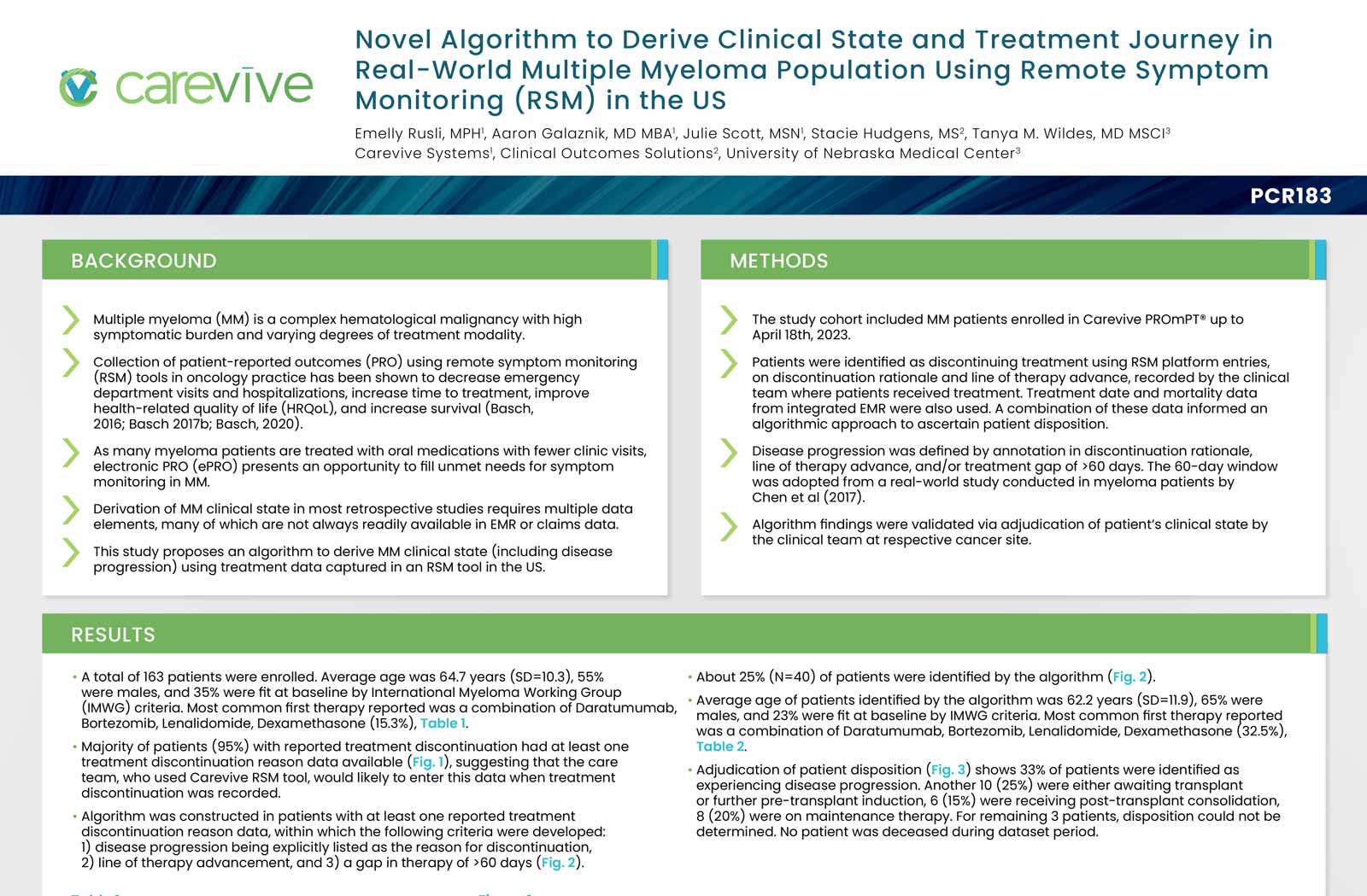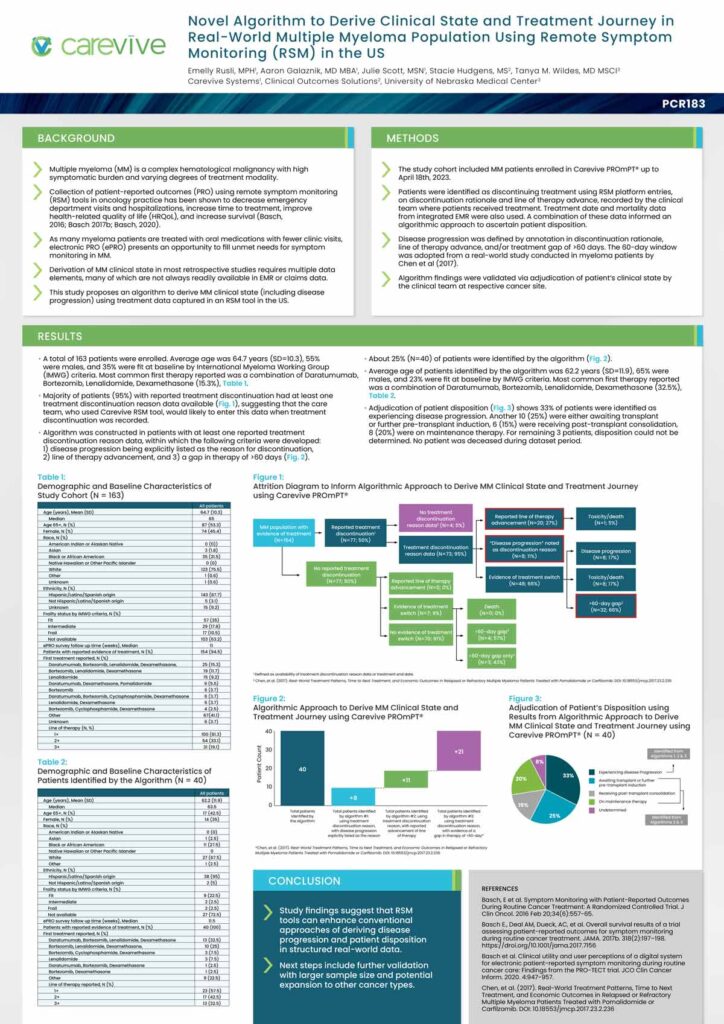
Authors: Emelly Rusli, MPH1, Aaron Galaznik, MD MBA1, Julie Scott, MSN1, Stacie Hudgens, MS2, Tanya M. Wildes, MD MSCI3
Carevive Systems1, Clinical Outcomes Solutions2, University of Nebraska Medical Center3
Background
- Multiple myeloma (MM) is a complex hematological malignancy with high symptomatic burden and varying degrees of treatment modality.
- Collection of patient-reported outcomes (PRO) using remote symptom monitoring (RSM) tools in oncology practice has been shown to decrease emergency department visits and hospitalizations, increase time to treatment, improve health-related quality of life (HRQoL), and increase survival (Basch, 2016; Basch 2017b; Basch, 2020).
- As many myeloma patients are treated with oral medications with fewer clinic visits, electronic PRO (ePRO) presents an opportunity to fill unmet needs for symptom monitoring in MM.
- Derivation of MM clinical state in most retrospective studies requires multiple data elements, many of which are not always readily available in EMR or claims data.
- This study proposes an algorithm to derive MM clinical state (including disease progression) using treatment data captured in an RSM tool in the US.
Methods
- The study cohort included MM patients enrolled in Carevive PROmPT® up to April 18th, 2023.
- Patients were identified as discontinuing treatment using RSM platform entries, on discontinuation rationale and line of therapy advance, recorded by the clinical team where patients received treatment. Treatment date and mortality data from integrated EMR were also used.
- A combination of these data-informed an algorithmic approach to ascertain patient disposition.
- Disease progression was defined by annotation in discontinuation rationale, line of therapy advance, and/or treatment gap of >60 days. The 60-day window was adopted from a real-world study conducted in myeloma patients by Chen et al (2017).
- Algorithm findings were validated via adjudication of patient’s clinical state by the clinical team at respective cancer site.
Conclusions
- Study findings suggest that RSM tools can enhance conventional approaches of deriving disease progression and patient disposition in structured real-world data.
- Next steps include further validation with larger sample size and potential expansion to other cancer types.

